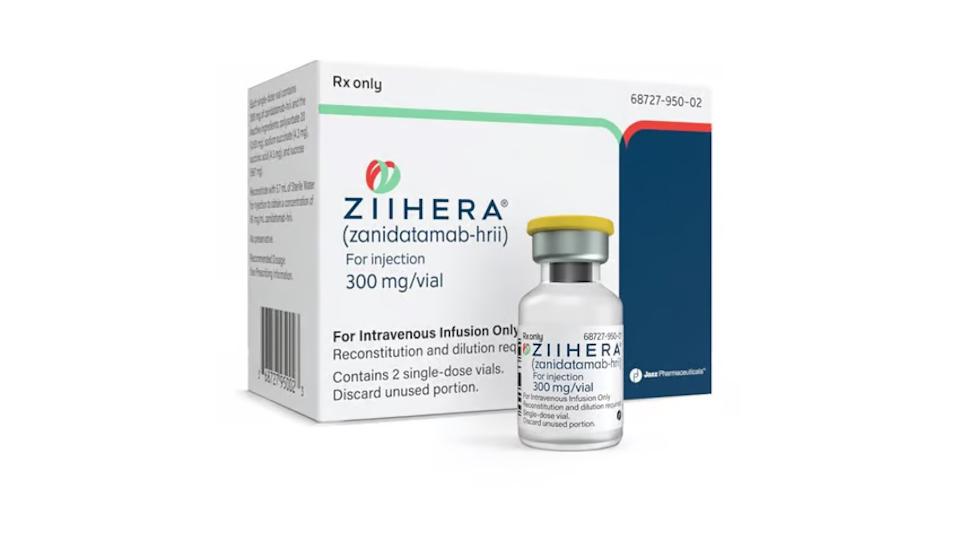Jazz gets first FDA nod for HER2 bispecific Ziihera

Jazz Pharmaceuticals has claimed FDA approval for its HER2-directed bispecific antibody Ziihera as a treatment for biliary tract cancer (BTC), the first in a series of potential indications that the company thinks could make it a blockbuster.
The accelerated approval covers the use of Ziihera (zanidatamab) for adults with previously treated HER2-amplified BTC, a fairly small population, but the big payoff could come if Jazz can also bring the drug to market for more common indications like HER2-positive breast and gastric cancers.
Jazz has previously suggested that peak sales of Ziihera could reach $2 billion, which would be a good return on the $325 million upfront payment and $1.76 billion in potential milestones laid out in Jazz's licensing deal for the drug with Zymeworks at the end of 2022. It holds rights to the drug outside various Asian-Pacific markets, where BeiGene is taking the lead.
For now, though, the company is focused on building Ziihera in BTC (also known as cholangiocarcinoma), noting that patients with unresectable or metastatic HER2-positive BTC have limited treatment options and only a handful of approved therapies.
The current armamentarium includes immunotherapies like MSD's Keytruda (pembrolizumab) and AstraZeneca's Imfinzi (durvalumab) in combination with chemotherapy. Another rival is AstraZeneca and Daiichi Sankyo's fast-growing HER2 antibody-drug conjugate (ADC) Enhertu (trastuzumab deruxtecan), which was approved by the FDA earlier this year to treat any HER2-positive cancer, regardless of its location in the body.
Ziihera's approval is backed by data from the HERIZON-BTC-01 trial, which found a 52% objective response rate (ORR) and a median duration of response of 14.9 months.
Its continuation on the market – potentially with a move into the first-line setting – could rely on the results of the confirmatory HERIZON-BTC-302 in previously untreated patients, which is due to complete in 2028.
Jazz said that, across the US, Europe, and Japan, approximately 12,000 people are diagnosed with HER2-positive BTC annually.
"BTC is a devastating disease with a poor prognosis and five-year survival rates under 5% in the metastatic setting," said Jazz's head of R&D, Rob Iannone.
"The approval of Ziihera, which previously received breakthrough therapy designation from the FDA for this indication, is an important advance and offers the first and only dual HER2-targeted bispecific antibody and chemotherapy-free treatment for patients living with BTC," he added.
With an eye on expanding the potential eligible population for its drug, Jazz is also running phase 3 trials in gastroesophageal adenocarcinoma (GEA), with results due in the second quarter of next year, as well as breast cancer, which could set up a closer rivalry with Enhertu.
Meanwhile, a phase 3 study for an agnostic HER2-positive tumour indication that could further impinge on Enhertu's territory is also underway.











